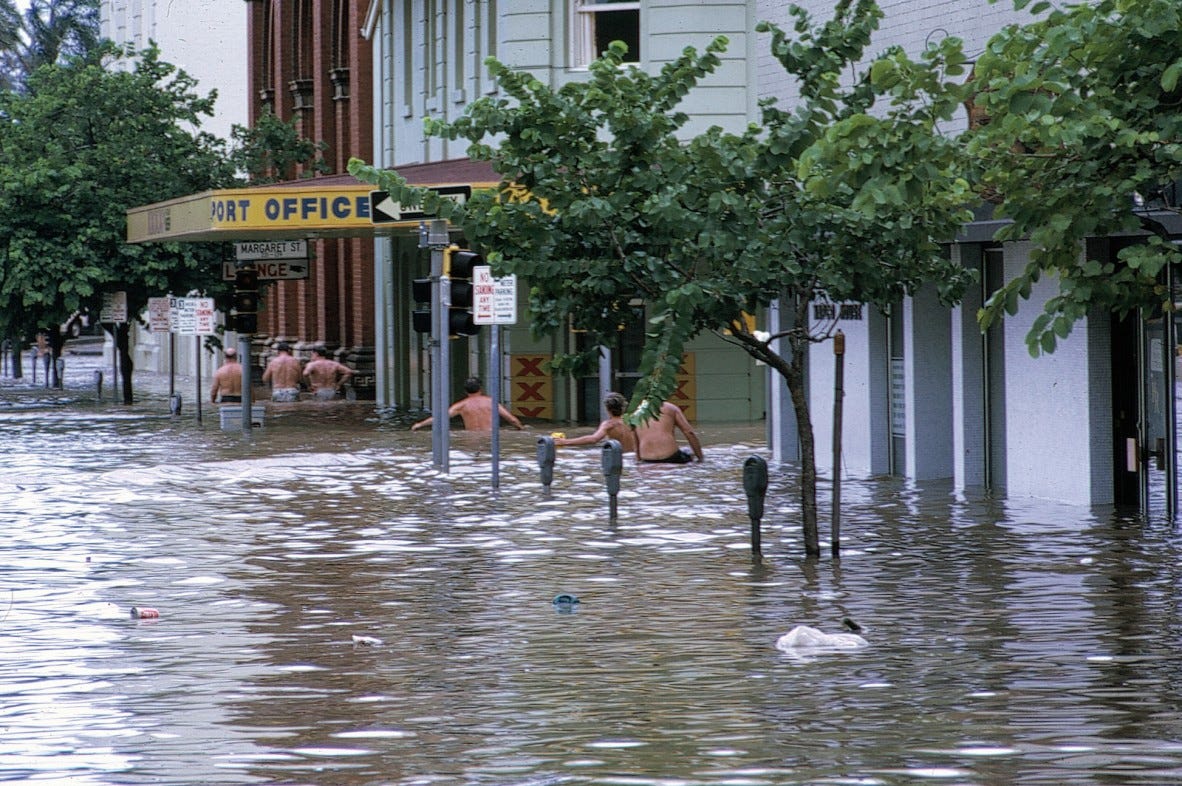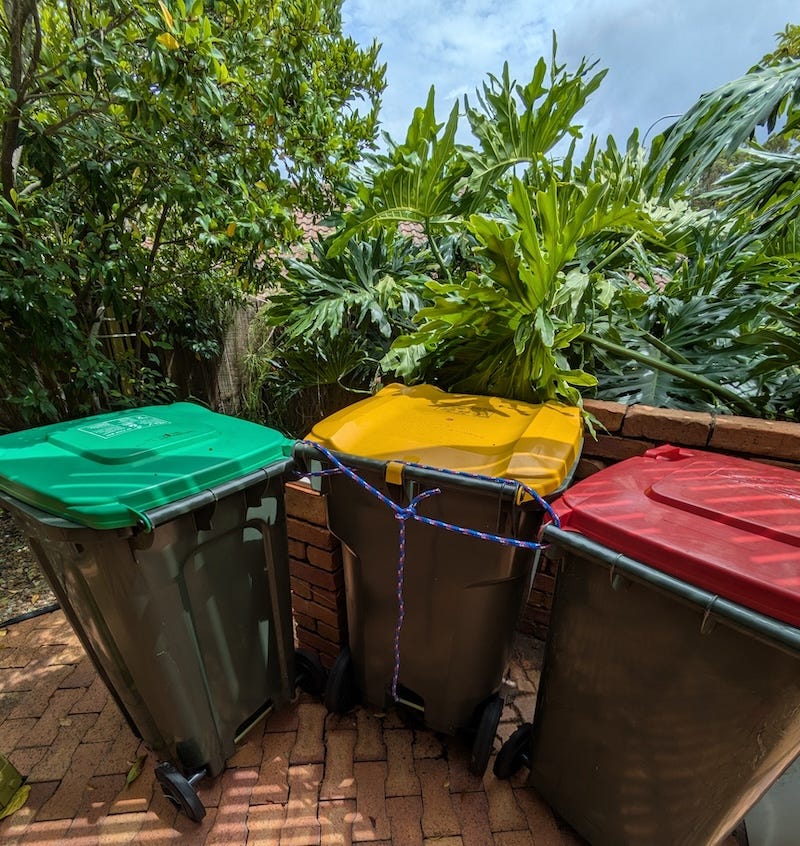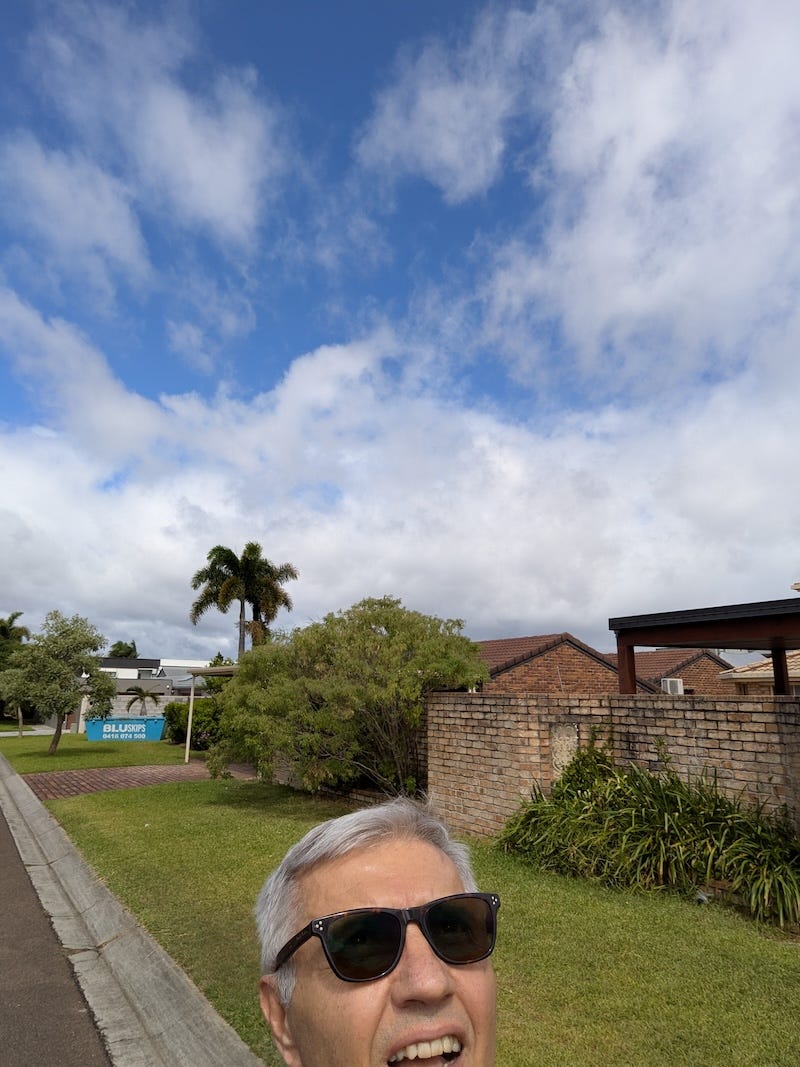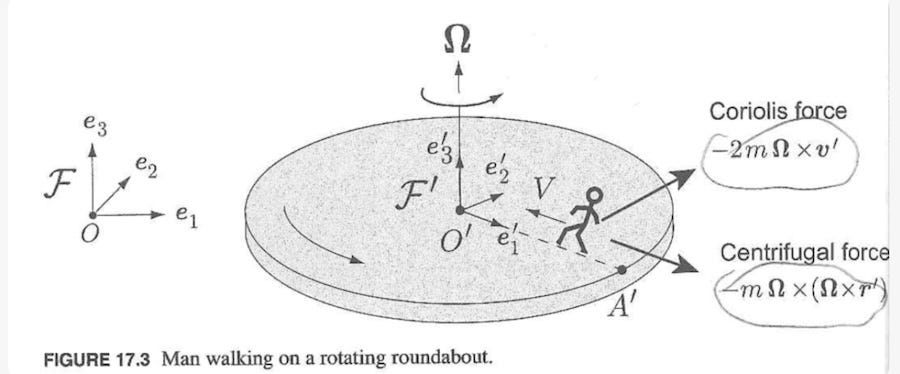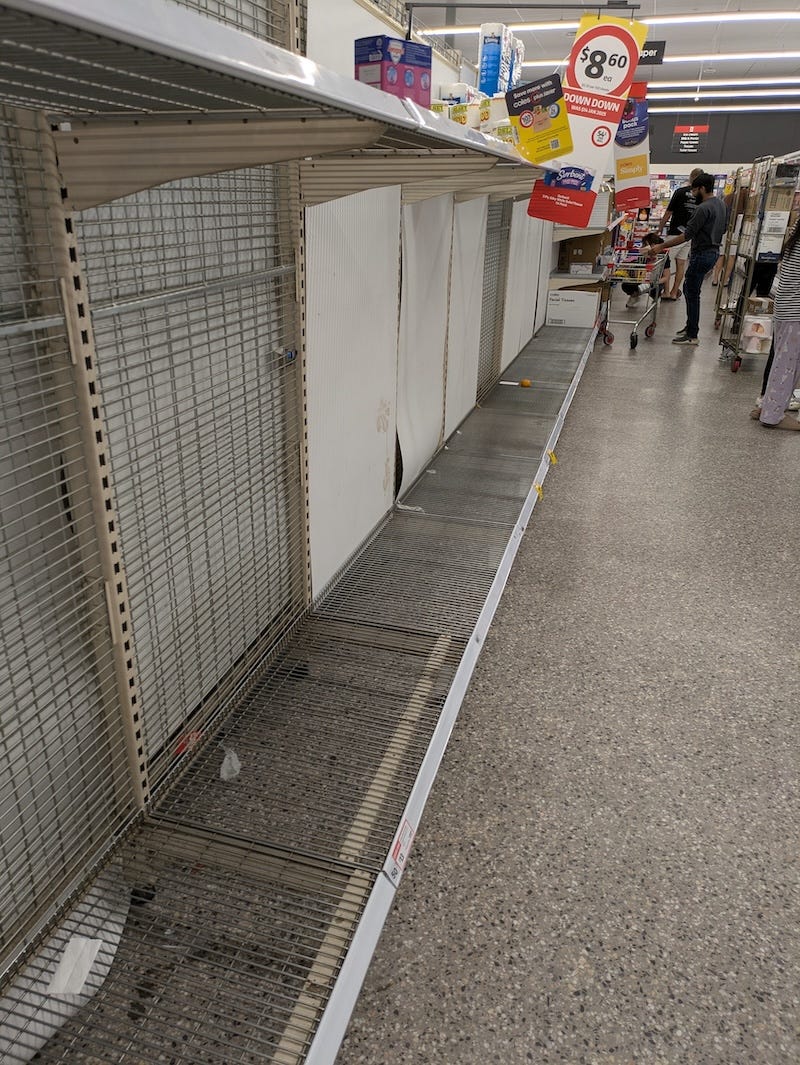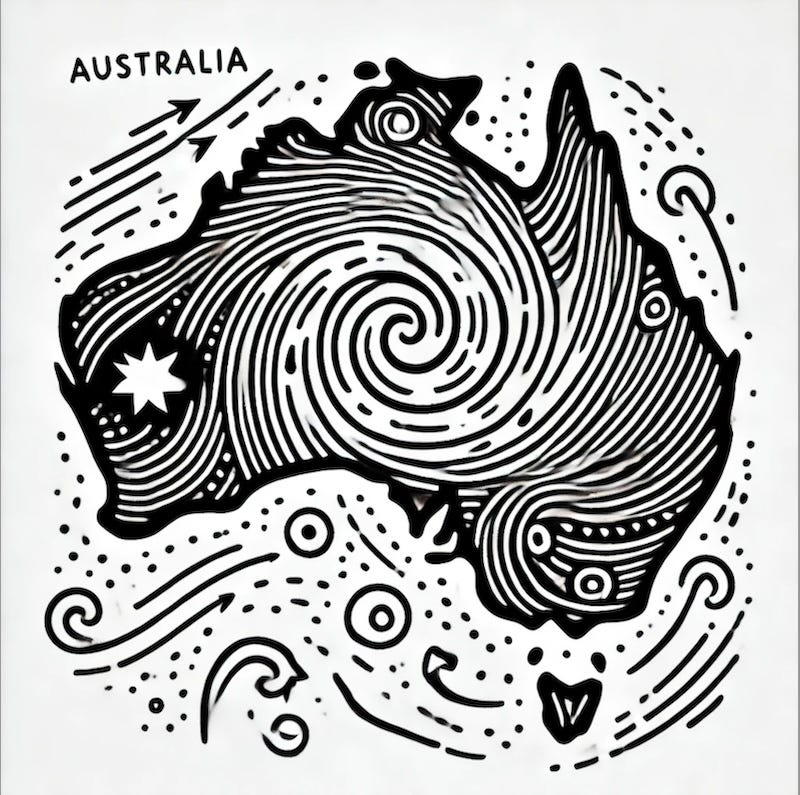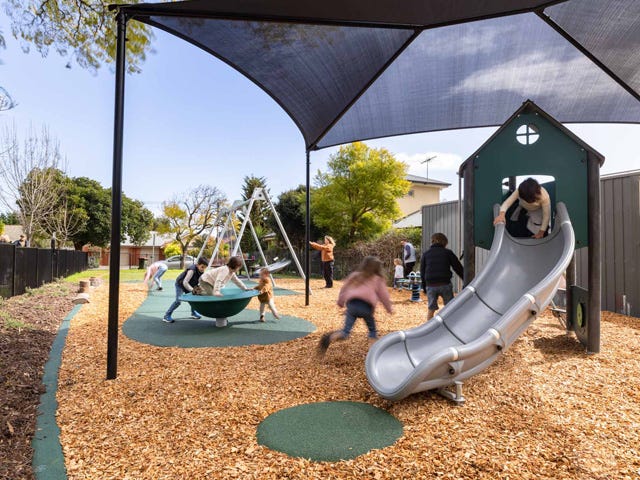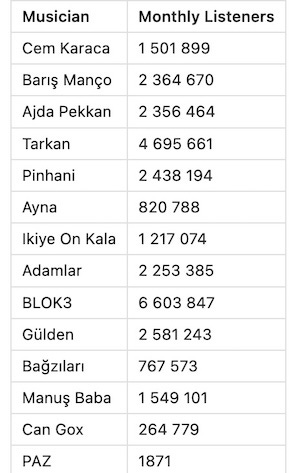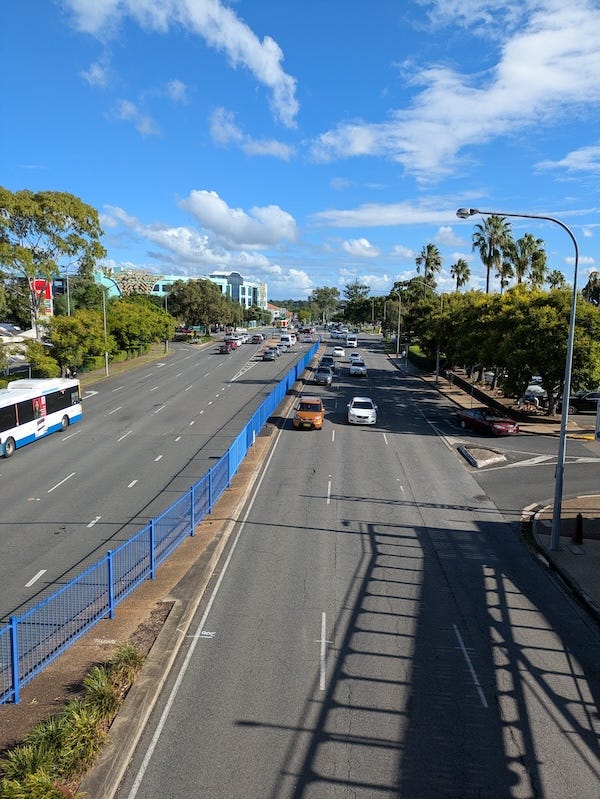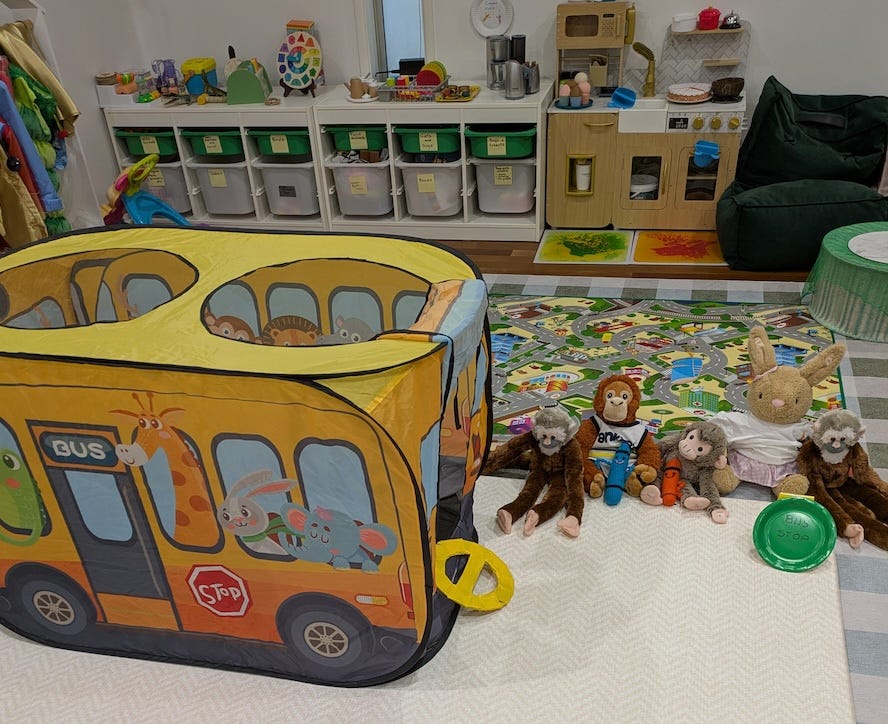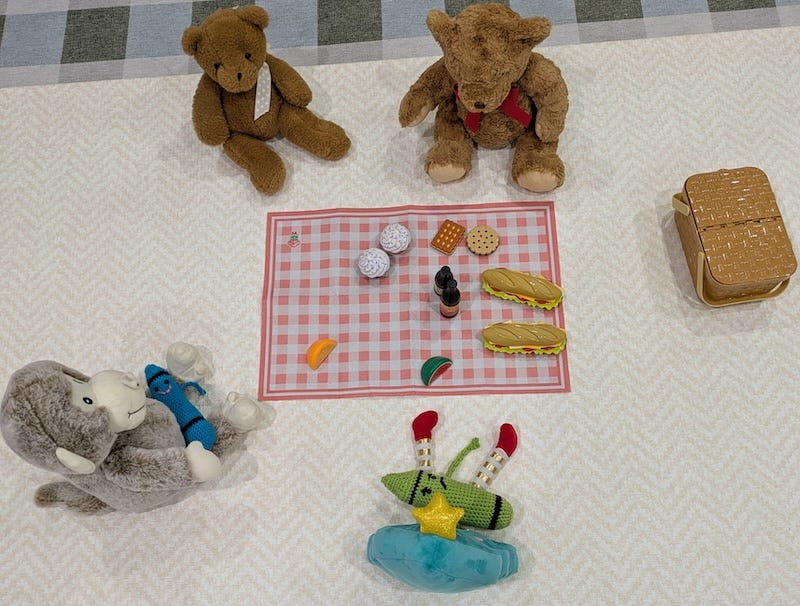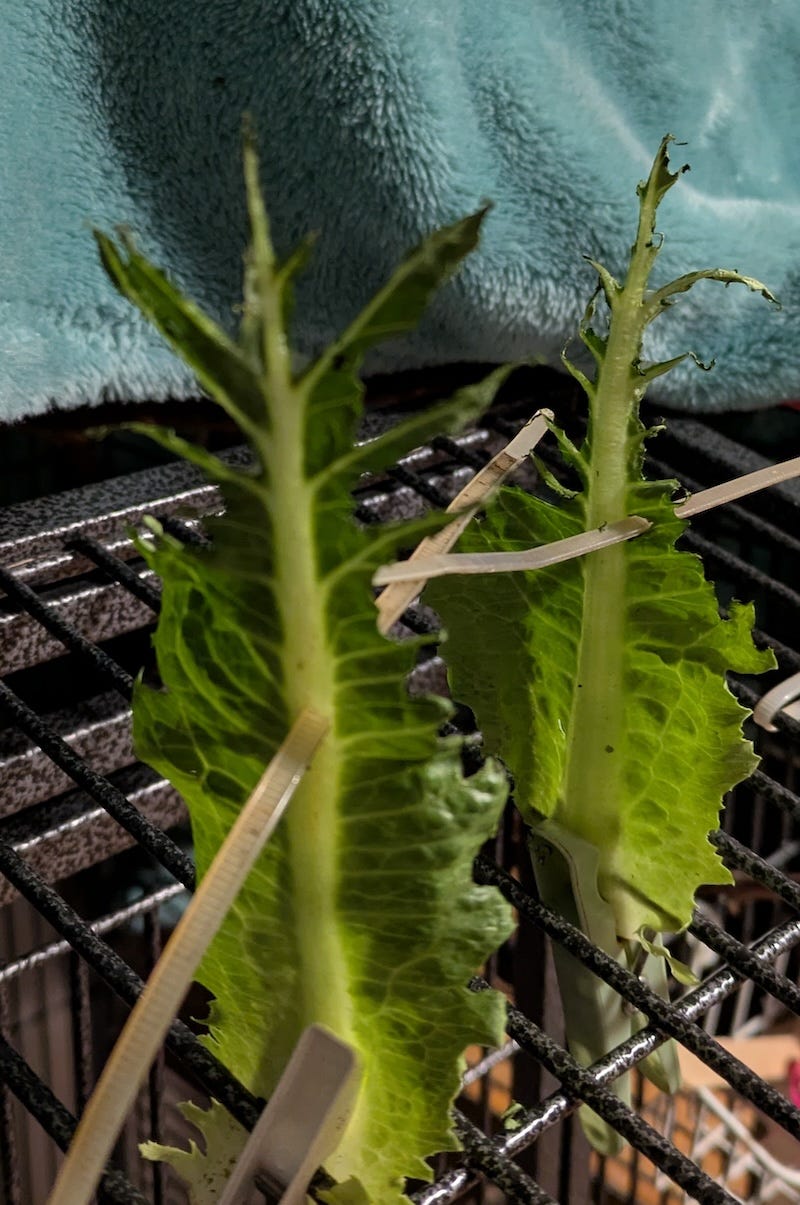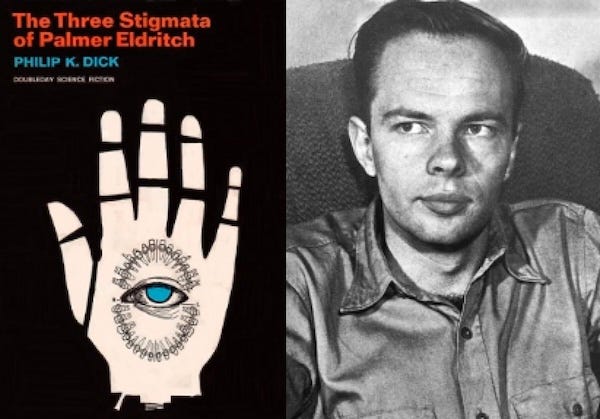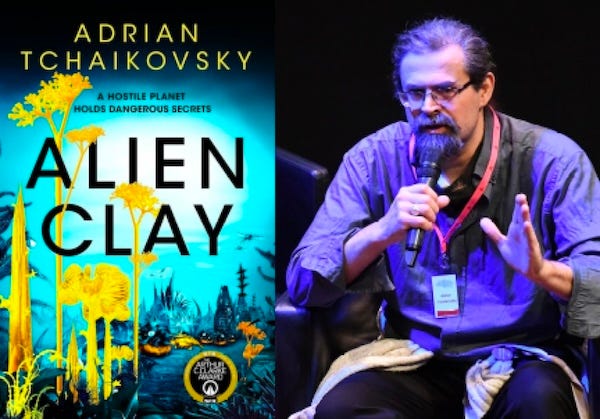TC Alfred: A Tale Told by the Media—Full of Sound and Fury, Ending in a Whimper
Eight Personal Revelations from the Eye of Tropical Cyclone Alfred
If you like what you read, copy and share the link, post it on another platform.
Please also subscribe to make sure you will not miss future posts. Subscription is free. Your email will not be used for other purposes. You will receive no advertisements.
Last week, Brisbane held its breath as Tropical Cyclone (T C) Alfred approached. Every natural disaster causes you to reflect on the ephemerality of our lives and the fragility of the way we live them.
In addition to reflections on life caused by the visit from T C Alfred, you will find the following in this post:
Dr Geoff Raby on the irrationality of current Australian foreign policy makers
Recommended Reading:
Comparing Istanbul and Brisbane prices - AT index
and the regular feature on Pascal Hagi antics.
T C Alfred brought back memories of 1974 when TC Wanda severely flooded the city.. The following picture was taken near the centre of Brisbane at that time:
Port Office Hotel in Edward Street during the 1974 flooding (State Library)
This time, Brisbane experienced a close call. Tropical Cyclone Alfred lingered off the coast, creating an emergency situation that lasted five days. Residents mostly stayed indoors, as the city prepared for potential 150-km/h winds and heavy flooding. Such natural threats inevitably focus the mind, and during this anxious week, eight lessons came clearly into view.
Lesson #1 - It's Rarely as Bad as Predicted
Politicians and media commentators typically forecast dramatic consequences. Starting from Wednesday, dire predictions dominated the news. But Alfred diverged: heavy rain fell, but not devastating winds. For us the only casualty was water entering my rubbish bin after the wind flipped its lid. I know many had worse, but still not as bad as predicted at the outset.
Meteorologists prefer caution; overstating risks avoids blame if the worst happens. Politicians amplify these warnings further, partly to ensure preparedness and partly to position themselves favourably when disaster is averted.
The same dynamic applies to personal anxieties. Anticipation frequently surpasses reality, reinforcing the importance of preparedness without succumbing to undue panic.
Lesson #2 - Tie Your Camel, Then Trust in Allah
Facing forecasts of severe wind, I secured our three bins together—garden refuse, recyclables, and general waste—and removed any loose items from the yard. I also brought my bicycle indoors.
Our three rubbish bins (garden refuse, recyclables, and general waste) tied together
The lesson is clear: take necessary precautions first, then rest easy knowing you've done your best.
Lesson #3 - Patience is virtue
Alfred took its time, hovering offshore for days before making landfall 50 kilometers north of Brisbane. Most businesses and transport services shut down, echoing the quiet isolation of the COVID lockdowns. The weather was pleasant initially. Here I am, calmly walking on Thursday.
Even then the official advice was to stay home. There was nowhere to go anyway. I entertained myself following the cyclone trajectory on my phone app.
The cyclone travelled at a very slow speed, sometimes as low as 6 km/h, i.e. at a walking pace.
Patience during unavoidable crises is as important as resilience afterward.
Lesson #4 - Politician’s Guide to Cyclone Management
Cyclones pose unique challenges for politicians—unlike sudden disasters, cyclones unfold slowly, demanding multiple public appearances balanced carefully with meaningful updates. Prime Minister Albanese and Queensland Premier Crisafulli demonstrated this well. I even heard Albanese to report on which supermarkets were still open and until when in one of his public meetings. The lesson is if you go out on camera, always have something noteworthy to say.
Lesson #5 - No more solo challenges please
This isn't just a lesson; it's a plea. Decades ago, explorers like Thor Heyerdahl demonstrated bravery by crossing oceans in primitive boats. Today, such solo adventures often depend on satellite phones, relying heavily on emergency rescues. Recently, the Australian navy had to rescue a Lithuanian rower attempting a solo crossing from San Diego to Brisbane amidst cyclone conditions. Let's stop such risky stunts that place unnecessary burdens on emergency services during natural disasters.
Lesson #6 - Always read email from work
Since retirement, I've often ignored university administrative emails. Last Wednesday, unaware of a campus closure announced via email due to cyclone risk, I traveled to an empty campus. Finding myself alone, I learned the hard way—always check official communications during emergencies.
Lesson #7 - The Coriolis Force is Real
Amongst all these life lessons, let us include a physics lesson.
If you try to walk towards the centre on a rotating platform, you will find it difficult to follow a straight line because of a sideways force acting on you.
This sideways force is called the Coriolis force after Gaspard-Gustave de Coriolis who explained this force in a paper in 1835.
The cyclones have a spiral shape for the same reason. As the air particles (think of them as the walking man in the above image) are sucked in towards the low-pressure eye of the cyclone (think of it as the centre of the platform) there will be force acting on them because the earth is rotating. Say if the air particle is moving North in the Northern hemisphere, it would be getting closer towards the earth’s axis as it moves and therefore the Coriolis force will be acting on it towards the right (towards East). However, there is also pull to the low-pressure centre. Therefore, the cyclones in the Northern hemisphere are counterclockwise. And they are in the opposite direction in the Southern hemisphere.
Lesson #8 - Risk Management
We decided not to worry about food because we had enough supplies in the pantry. Besides, you can live a long time without eating. Water is another matter. Brisbane tap water is drinkable but we were worried for contamination after the storm. Therefore, we filled a few bottles with tap water. We also filled in the bathtub but I regret doing that because I did not think there was a risk of supply, only the contamination.
The must-have item is toilet paper. This is funny but the truth. Turkish toilets have built-in bidets. In Ausralia, it is dry cleaning so you need toilet paper. I got into the habit of always keeping a 24-pack spare after COVID. Therefore, unlike others, we did not worry about it. The following picture shows the toilet paper shelf in the local supermarket:
First shelves to empty in supermarkets were toilet paper shelves
Conclusion
We navigated Cyclone Alfred safely, though others nearby faced flooding and isolation. Such natural disasters remind us vividly of life's inherent fragility.
Post Script
While watching the sluggish pace of TC Alfred on my app, I asked myself how much power would be needed to produce an artificial cyclone in the middle of the Australian continent to suck in moisture from the coast to irrigate the arid interior. If such a thing were possible, then we could turn the whole Australia into a green continent with coastal winds carrying moisture to the interior. There would be cyclonic winds in a few hundred kilometers around the cyclone centre but the effect around the coast would ne unnoticeable.
With Claude Sonnet, it took a few tries before we had a model I was reasonably happy with. As I expected, the power requirement is huge. To maintain a cyclone-type low in the middle off Australia, you need continuous power supply of 40 terrawatts (TW). For comparison, the world electricity consumption is about 3 TW — calculated as the total annual global consumption (25000 TWh) divided by the number of hours in a year (365 x 24).
Short Takes
-+-+-+-+
Sunlight may reverse Myopia Epidemic
Graham Lawton, New Scientist, 13 November 2024
Near-sightedness rates are rising globally. More than a third of 5-19 year olds need glasses now, compared to just a quarter in 1990. When I started primary school in 1960, the ratio was 10-20% on average globally and lower in Turkey.
Most myopia is "axial myopia" - too long eyeballs. The extra length causes light to focus in front of the retina instead of directly on it, resulting in blurry distance vision.
New-born babies are far-sighted. Their eyes gradually grow and reach the perfect focal length around their first birthday. The growth should stop then through a process called emmetropisation.
For complex reasons the stop signal sometimes fails to arrive and the eye continues to elongate gradually, with growth accelerating between ages 8-16. Ophthalmologists call this the "myopia cliff" - once crossed, there's no turning back.
While glasses, contacts, and even laser surgery can correct the symptoms, they do not correct the cause, physical elongation of the eyeball itself. This explains why researchers are now focused on preventing myopia development.
The main culprit isn't screens or books. Time spent indoors appears to be the primary factor. Apparently, natural outdoor light (at least 5000 lux - what you'd get in the shade on a sunny day) helps prevent eyes from growing too long.
A pocket park on Waverley St, South Australia
Scientists do not yet understand how outdoors helps but the data shows that your kid should be playing outside for at least 1-2 hours a day. Inclusion of small park spaces in the neighborhoods will help but the parents need get into the habit of taking their toddlers out there. Otherwise, the trend is that half of the children by 2050 will have to need glasses.
Take your toddler outside for two hours every day. Do it when they are young. By the time they are school age it is too late.
-+-+-+-+
Rock music ages well
A recent Semafor article says I am not an outlier when it comes to the rock music. About 75% of the rock songs played on the streaming platforms are at least five years old according to a Billboard survey.
I felt the same about the Turkish music until a few years ago but not any more. I did a very quick survey through the Spotify for new artists I enjoy and the old masters. The numbers are comparable as shown in the following table:
Shortest Cuts
Time to leave Aukus
A former Liberal leader (Malcolm Turnbull), a former Labour Leader and Prime Minister (Paul Keating), and the current leader of the Greens (Adam Bandt) are in rare agreement with each other: AUKUS is a bad deal for Australia and we should get out of it. I agree.
Parks are not Homeless Shelters
I believe Adrian Schrinner is right in evicting the homeless from the parks. Parks should stay as safe grounds for families with children. The governments have the responsibility to provide shelter to the homeless but this shelter should not be our public parks.
The Video
I selected an interview with Ambassador Dr Geoff Raby on the Neutrality Studies YouTube Channel. Geoff Raby is an Australian economist who served as the Ausralian Ambassador to China from 2007-2011. He published last November the book “Great Game on: The Contest for Central Asia and Global Supremacy.”
Geoff Raby and Hugh White represent the old school Australian foreign policy experts who preached balance and independence in foreign policy. Today, unfortunately, the foreign policy narrative in the Ausralian media seems to be controlled by presumptuous amateurs who reduce everything to containment of an imagined China agression.
-+-+-+-+
Diary
Sunny skies are back but the traffic is not back to normal yet. I took this picture from Sunnybank pedestrian bridge looking south during the afternoon rush hour:
We take Eleanor’s bus. Here it is with the other passengers waiting at the bus stop:
When she gets tired of the game, she says “This bus is not in service”. She then lifts the bus and pushes it against a wall. She says she is parking it. I ask where she is parking it. She answers “Bus depot”.
She likes a picnic with her teddy bears when she is not on bus driver duty. This is Eleanor’s teddy bear picnic scene:
All playroom scene design and setting up is done by Meliz.
Pascal Hagi
An evening while waiting for the Tropical Cyclone Alfred. I want to take both birds in before the winds and the rain start. Pascal flies in and then we together call Hagi to come in, who eventually does.
During the TC Alfred watch, daily fresh lettuce was not available. I had to buy stuff a few days old wrapped n plastic. Pascal and Hagi do not east all fresh lettuce anyway. They favour a special kind that is hydroponically produced. It is usually stocked by Coles but not during the cyclone. For the past week, they refused to eat the lettuce that comes out of a pack. Finally, their favourite became available yesterday and they nibbled it almost to the bone.
What I Read
-+-+-+-+
P K Dick, The Three Stigmata of Palmer Eldritch
Philip K Dick was an exceptional writer and this is one of his best books. If there is a God and if the God decides to come to Earth how would he appear to us? What would he have to do for us to take him seriously? Would we take him seriously? PKD likes posing these questins in his books.
The god-like entity is Palmer Eldritch, a man returning from his trip to Proxima Centuri. During this journey, we understand he encountered an alien entity that fundamentally changed him. Was that alien entity the God? PKD asks the question but does not answer it. The “three stigmata” of Palmer Eldritch is a clear reference to the stigmata in Christian tradition, which are mysterious physical marks on the body corresponding to Christ's crucifixion wounds.
The world Palmer Eldritch returns to is a troubled world in many ways:
It is nearly uninhabitable due to dramatically rising temperatures, which Dick describes as "the Hothouse Effect." This book was written in 1965. So this is probably the first literary reference to greenhouse effect or climate change. I find it amazing that he had the foresight or prescience to write about global warming in 1965.
The world is very unequal. The poor lives in hovels while the rich can fly away to satellite habitats. One escape route for the poor is immigraton to Mars.
There are colonies in Mars. Mars is a difficult place and to cope with the bleakness, Martian colonists use a drug called Can-D, enabling them to share illusory experiences through “layouts”—miniature settings that facilitate collective hallucinations.
There are people who have precognition abilities. When precognition is mixed with drugs, the visions get blurred with reality. In this book, there is also possibly a godlike entity who may or may not be able to cause miracles. It gets quite complicated.
The plot intensifies with the return of industrialist Palmer Eldritch from the Proxima Centauri system, bringing with him a new, more potent substance: Chew-Z. Unlike Can-D, Chew-Z offers individualized, immersive experiences, blurring the lines between reality and illusion. Eldritch may have encountered an alien entity on the way back who may have given him godlike powers.
The speculation on what an encounter with God may feel like is taken up by PKD in his other books too. The most notable of these are Ubik and VALIS. The latter, written in 1981, is semi-autobiographical and is based on a mystical experience Dick apparently had in 1974.
Philip K Dick is one of the 20th century authors whom you should read. You might as well start with this book.
Alien Clay, Adrian Tchaikovsky
While searching for the above images, I learned that Alien Clay by Adrian Tchaikovsky is currently a finalist for the 2025 Philip K. Dick Award. I do not know who the other finalists are but I believe Tchaikovsky has a good chance because this is a brilliant book.
The book is written in first-person voice and the narrator is Arton Daghdev. Arton is a university professor working on xenobiology. This is a dangerous field for an academic because the global government, a dictatorship called the Mandate, decrees that human form is the template for all life in the universe and does not tolerate counter theses. Because of loose talk at parties, Arton is exiled to a labor camp on an alien planet called “Kiln”. The purpose of the camp is to examine the ancient civilisation that humans believed once existed in the planet. From this civilisation, only ruins remain and the shape of some of these ruins looks enough like the pottery ovens of old Earth to give the planet its name.
There are inscriptions on the walls of these ruins but they remain undecipherable in spite of all efforts.
Kiln has a unique and complex ecosystem. We do not understand how complex it is until well into the book.
I loved this book on several levels:
The Earth government, the Mandate, is a government guided by “science” and it shows the dangers of governments of the technocratic elites. If a technotratic elite comes to power with a scientific mandate they believe in and with the authority to apply it, they would not tolerate any opposition because the “science” is on their side.
There are good insights into the petty conflicts in universities, except that here the outcome of the conflict might end up someone being sent to a penal colony.
Being an academic, Arton thinks a lot on everything, including the act of rebellion. He thinks “there’s nothing more embarrassing than a failed revolutionary (p 205)” yet one needs to take risks not to fail even risk his life. But “the hardest thing about sacrifice is not knowing if it’ll be worth it. What’s the point in taking the bullet if the person behind you in the charge loses heart, dithers, runs away? You may as well have stayed at home. You only have one life after all. It can be very hard to know when to throw it away(p 312-313).”
Finally, the “secret” of the Kiln civilisation is a very original concept. Some critiques stated that "the biological aspect of the story is a tool to support Tchaikovsky’s primary message, which is a vivid illustration of how suspicion can undermine both an authoritarian regime and any potential resistance to that regime." (Kirkus Review, 4 July 2024). I do not think I agree with this. The “biological aspect” is more than a scaffold for the main thesis but is interesting enough to stand on its own right.
If P K Dick was a must-read author from the twentieth century, Adrian Tchaikovsky is the same for the twenty-first century. Like Dick, he is a prolific author. I do not think he writes his books under influence as P K Dick was supposed to have done but his books do not lack on the originality and are a pleasure to read.
-+-+-+-+
Comparing Istanbul and Brisbane prices - AT index
Based on my basket of goods, Australia is only 6% more expensive this week compared to Istanbul. Both Coles (AU) and Migros (TR) prices are expressed in Turkish liras for the items in the basket on 17 March 2025. I converted Coles prices to Turkish liras at the exchange rate of 1AUD=23.28 TRY.
The y-axis in the following chart is
The trend (the red dotted line) is rising, which means that, since 5 July 2024, the Turkish prices are slowly approaching the Australian prices. Some items, e.g. beef mince, is more expensive than in Brisbane and has been consistently so since I started this chart.
The code to create the above tables and the plot is in my github repository and can be downloaded if you are interested.


